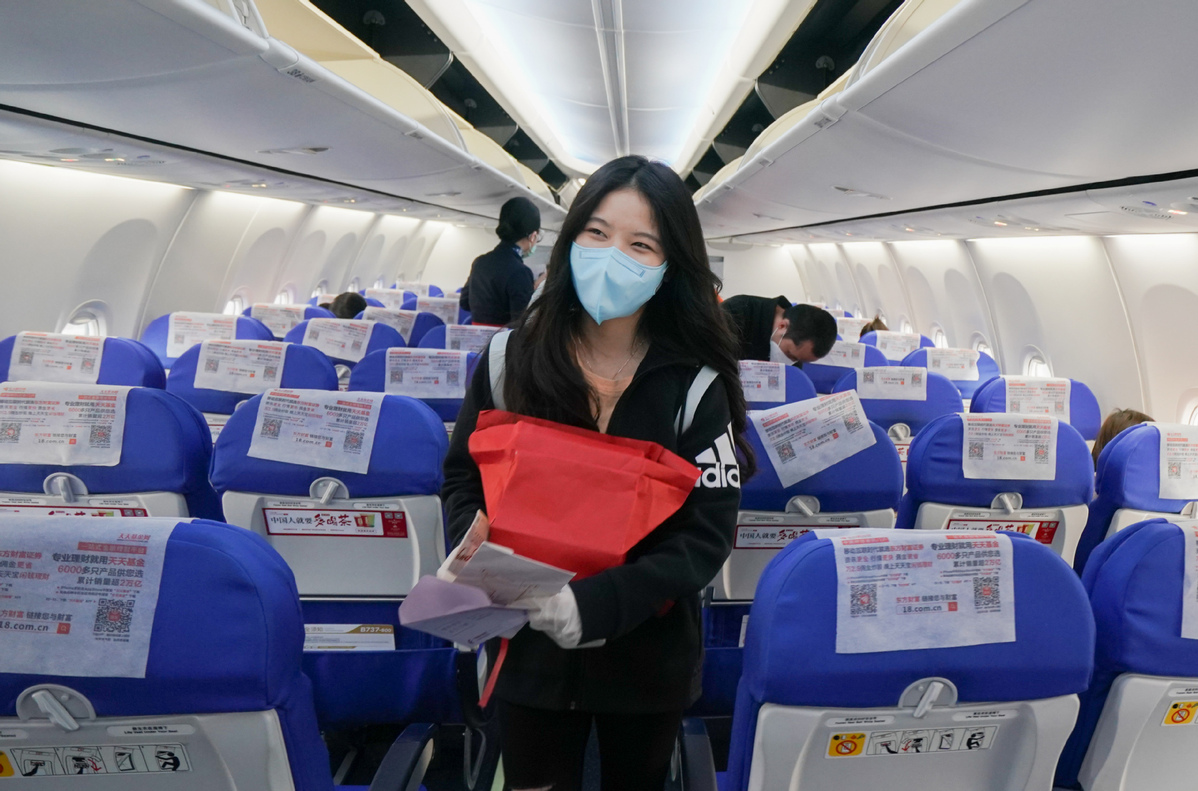Carriers take earnings hit from COVID-19 in H1


Major Chinese carriers slipped into the red during the first half of the year as the COVID-19 epidemic slammed their businesses, but rising passenger numbers during the second half of the year may see the carriers end the year in positive territory, experts said on Monday.
China's top three carriers posted a combined loss of more than 26 billion yuan ($3.79 billion) in the first six months of this year due to the slump in passenger numbers, according to their filings.
Air China, China Eastern Airlines, and China Southern Airlines saw their revenues plunge by 54.61 percent, 57.25 percent and 46.58 percent respectively on a yearly basis in the first six months, while their net losses were 9.4 billion yuan, 8.5 billion yuan and 8.2 billion yuan respectively.
"During the most severe period of COVID-19 in the first quarter and after the Chinese New Year, the top three airlines lost about 100 million yuan each per day. But since the second quarter, things have improved thanks to the effective measures to contain the contagion in China," said Chen Zhuo, a senior analyst with China Merchants Securities.
Privately-owned Chinese carriers also posted revenue declines between January and June. Shanghai-based budget carrier Spring Airlines reported a 43.42-percent slump in first-half revenue from a year ago with a net loss of 409 million yuan, while Juneyao Airlines reported a revenue drop of 48.28 percent on a yearly basis and a net loss of 675 million yuan.
In contrast, China Express Airlines, the nation's first specialized regional flights operator, reported a net profit of 8.23 million yuan in the first half, although its revenue slid 19.96 percent year-on-year. Its outstanding performance resulted from its unique flights and rigid travel demand even during the contagion. The carrier's active and timely adjustments to its flights and management also helped cushion the effect of COVID-19, said Chen.
The number of domestic and international flights in China fell by more than 70 percent in late January, and the condition gradually improved domestically after containment and prevention measures since late February. By June, domestic flights had returned to about 75 percent of the levels seen in the same period of 2019, according to data provided by Chinese aviation data and solution service provider AirSavvi.
"Passenger numbers continued to improve in July and August. In the first 13 days of August, the top three Chinese airlines saw their flights reach 80 percent of the pre-COVID-19 level. We expect the recovery in domestic flights to continue," said Wu Yifan, an analyst with Hua Chuang Securities.



































